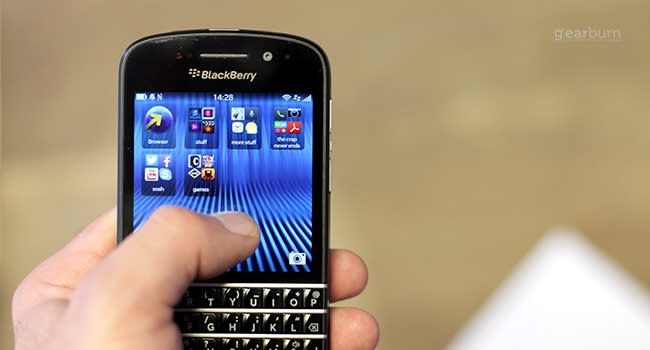What comes next for BlackBerry

As BlackBerry’s “special committee”, struck Aug. 12th to explore the beleaguered smartphone maker’s strategic options, begins its work in earnest, divisions are growing among observers over how the review will impact the company as a whole and its myriad components.
Raymond James Ltd. and BMO Capital Markets analysts this week estimated the handset business had a negative net worth – and would cost upwards of $800 million U.S. if the company shuttered it. Ramon Llamas, who authored a report earlier this month that showed BlackBerry slipping to fourth place in global handset market share, says the hardware game isn’t over for BlackBerry, but the waters are turbulent.
“I think there’s still a business to be had because people still want the hardware,” said Llamas, Research Manager with IDC’s Mobile Phone team. “But there are a number of other platforms and vendors who are making a serious run at the enterprise with their handsets - most notably Samsung, Apple, and Nokia/Microsoft. “Virtually everybody wants to come in and eat BlackBerry’s lunch in the enterprise as far as handsets go.”
More than just hardware
Hardware is only one piece of BlackBerry’s complex organizational puzzle. Its 2010 purchase of QNX Systems gave it the underpinnings for the BlackBerry 10 operating system at the core of its latest devices. Krista Napier, senior analyst IDC Canada, says QNX could hold the key toward expansion into non-traditional markets, citing a recent partnership with Panasonic Automotive Systems to create infotainment solutions. Napier says QNX itself could be an attractive target for private equity buyers.
Ronald Gruia, Program Leader for Enterprise Communications with Frost & Sullivan, says transitioning into vertical markets, however, could be challenging.
“You can’t do this overnight,” he said. “It does take a certain amount of time to develop the technologies, the relationships and position yourself against your other competitors.”
Services could be key
There’s more optimism for BlackBerry’s management solutions, which Napier calls well-differentiated.
“The company's services include the new BES 10 which provides cross-platform mobile management features that could be attractive as a stand-alone business, or as part of a sale,” Napier says. “BlackBerry still has its software, a brand that is recognized worldwide, and many users. That could be of interest to other emerging players looking to ramp up with another OS via licensing.”
Llamas says despite its inherent value, BB10 may be more difficult to carve off.
“This is the octopus with many tentacles, heading in different directions, with many pieces developed both off of it, and for it,” he said, “This is one piece that BlackBerry would want to hold onto a little more closely.”
Llamas says BB10 is flexible, customizable and scalable, and can be leveraged in any environment where devices need to talk to each other. He says CEO Thorsten Heins has been quite vocal about BB10’s potential as a mobile computing platform, “and that’s something you can do without a smartphone, and without a tablet.”
Potential patent play
Unlike the tightly-linked operating system, Llamas says BlackBerry’s intellectual property portfolio, which analysts have valued anywhere between $1 billion and $5 billion, isn’t as closely intertwined.
“This is something that can be licensed,” says Llamas, “You can extract value from it more easily than by trying to take over an entire business.”
However the strategic review ultimately plays out, Napier says the future will look very different in Waterloo.
“I think change is imminent at BlackBerry,” she says. “It has to be. I think many of its assets and patents that have made it successful will not disappear altogether. They still hold value, but they might take up residence somewhere else.”
Carmi Levy is a London, Ont.-based independent technology analyst and journalist. The opinions expressed are his own. carmilevy@yahoo.ca

 Yahoo Finance
Yahoo Finance 
